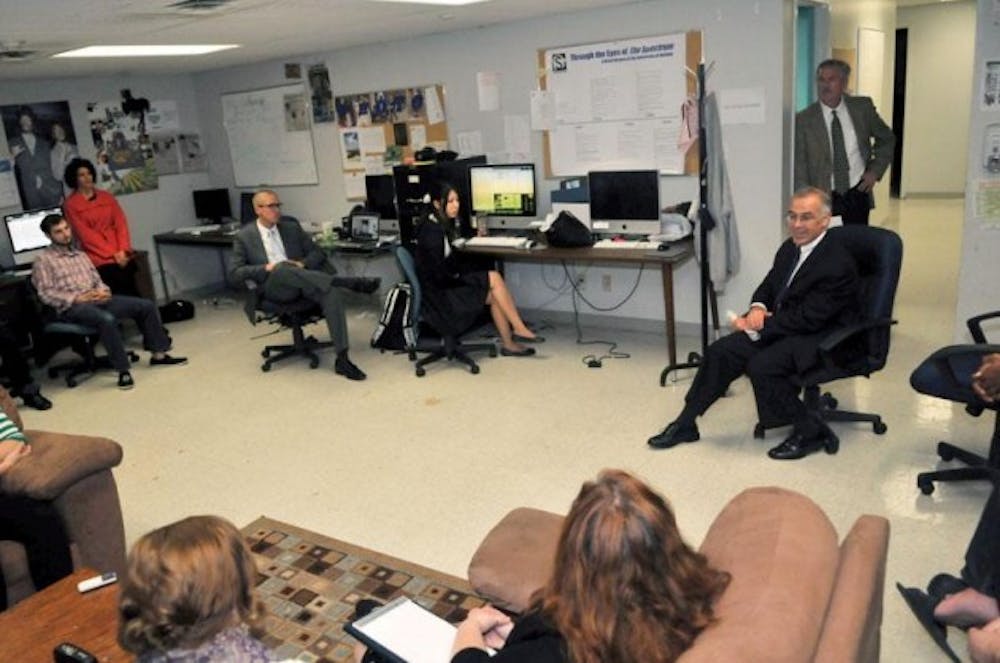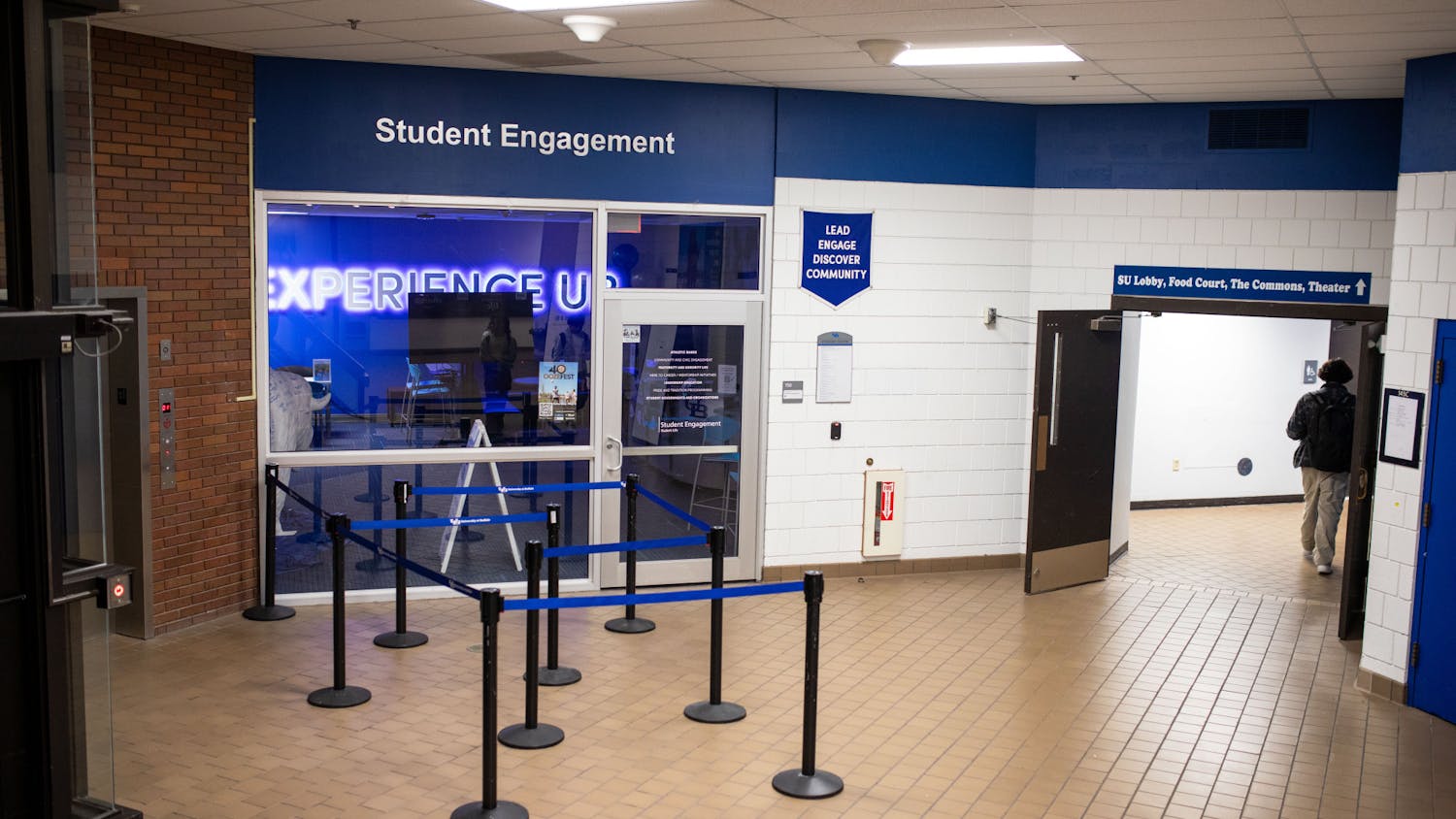New York Times political columnist David Brooks came to UB on Sept. 20 to start off the 26th-annual Distinguished Speakers Series. But before his speech at the Center for the Arts, he stopped by UB's student-run newspaper, The Spectrum, to give advice to the aspiring journalists.
While many students in the office plan to apply to graduate schools of journalism, Brooks said it isn't necessary.
"I confess, I never took a journalism class," Brooks, 51, said. "I think that's a little overboard. I mean, you should take journalism, but I'm a big believer in 'You gotta bring something to the table.' Say you're applying for jobs. A certain number of people can write a good story, but what else are you bringing?"
Brooks encouraged the students to find a niche, whether it is studying biology or economics, master a skill set - utilize it to write for future employers.
Brooks knew he wanted to be a writer when he was 7 years old, but he said if you want to have a writing career today, you have to be "multi-platformed." When he covered the Republican and Democratic National Conventions, only a third of his time was dedicated to writing columns; he also had a daily web conversation and web chat.
Unlike many modern journalists, Brooks does not tweet. He does, however, appear on PBS News Hour on Fridays and often on MSBC's Meet the Press on Sundays, in addition to his two columns per week.
"And I do that just because I want to be able to survive, and I don't know where the future is so I'm just going to do it all," Brooks said.
He said today's market in journalism is for two types of writers: the "sprinter" and the "long distance runner." Brooks said the sprinter is the person who can tweet or write an instant web story, and the distance runner conceptualizes a big topic into one story.
Brooks got his big break while attending the University of Chicago, where he later earned a degree in history. He was an opinion and editorial writer for the school newspaper. Then liberal, he wrote a parody about the conservative author and commentator William Buckley, because Buckley was coming to his campus to give a speech.
At the end of Buckley's speech he said, "David Brooks, if you're here I'd like to give you a job."
Brooks took him up on that deal two years later. Buckley "adopted" Brooks and taught him how to be a journalist. He left Buckley a year and a half later to experience various jobs, including reporting abroad for The Wall Street Journal. He covered the Middle East Peace Process, Nelson Mandela coming out of prison in South Africa and the fall of the Soviet Union - which he said was the best story he's ever covered.
Brooks eventually developed a conservative mindset, which he describes as "not quite where the Republican Party is, but it has more to do with where Theodore Roosevelt and Alexander Hamilton were."
Brooks said he admires President Barack Obama, as well as other politicians, but as a reporter he cannot allow personal loyalty to get in the way of a column. Brooks is instead loyal to a specific type of conservative vision.
At times when he thinks Obama deserves it, Brooks "dumps" on Obama. Obama will then call him into the White House to try to explain why Brooks is wrong.
"One of the dangers of being a columnist is it's so easy to turn into a partisan," Brooks said. "You're just going to represent the Republican point of view or Democratic point of view. But if you try to be loyal to a vision rather than a party, then you get sh*t from both sides."
Brooks said government demands the highest intellectuals and the highest moral skills, and it is incredibly important for students to pay attention to politics, especially with the upcoming presidential election.
Though he's written for The Times for nine years, Brooks still is never content with his work.
"I read my columns in the paper; they're never good," he said. "It's never like, 'Man, I nailed that one.'... But occasionally it'll be a B, often it's a C or a D, and I feel humiliated and I really have a bad day. But at least I got another one coming in a couple of days."
Email: news@ubspectrum.com





